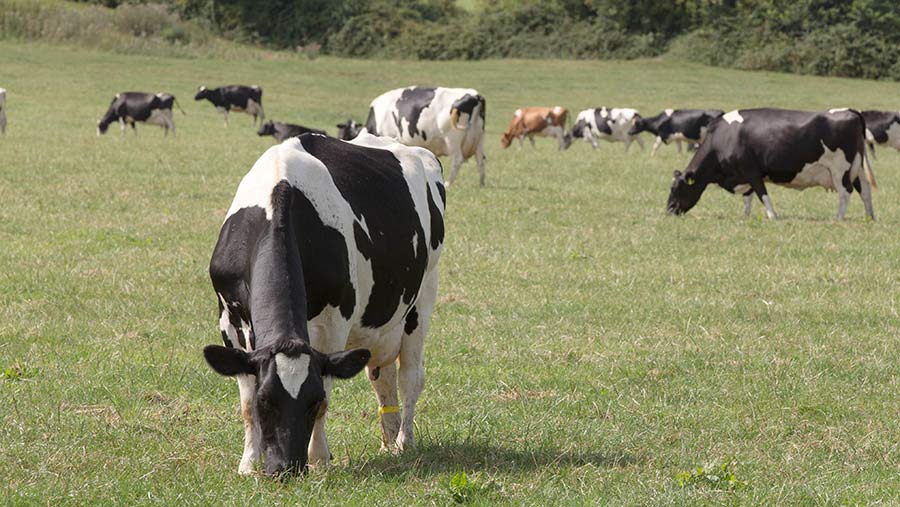Red Tractor announces tougher dairy farm standards
 © Tim Scrivener
© Tim Scrivener Dairy farmers will have to comply with more stringent health and welfare rules after Red Tractor Assurance announced a long list of changes to its standards.
The changes will come into effect on 1 October this year and have been drawn up after a consultation on Red Tractor’s policies.
A statement by the assurance body said the changes were needed to ensure practices met veterinary advice and consumer expectations on how food is produced.
See also: How to avoid drone insurance and licensing pitfalls
The list includes changes to:
- Health plans
- Pain relief
- Animal husbandry
- Disease control
- Colostrum management
- Antibiotic use
- Medicine administration
- Documentation
- Milk production
Health plans
Livestock Health Plans must be carried out with a vet who will sign off the final version. A template and further details will be available on the Red Tractor website soon.
Pain relief
Part of the health plan covers pain relief such as anaesthetic, analgesic and non-steroids. Along with noting details in the plan, all administration must be entered in the medicine records.
Animal husbandry
Cauterising paste for disbudding will only be permitted on stock under seven days old. Animals must also receive pain relief.
Disease control
All scheme members outside Northern Ireland must complete a Johne’s Action Plan, signed by a British Cattle Veterinary Association accredited Johne’s adviser.
Members must also demonstrate their efforts to eradicate BVD through testing or national scheme membership.
Colostrum management
Farms must no longer feed milk or colostrum from Johne’s-positive cows to youngstock which may potentially enter the breeding herd.
Antibiotics and medicines
Vet reviews on antimicrobials use will be more stringent and focus on off-label use of medicines plus alternative disease prevention strategies.
Vets must be informed of any failings in antibiotic administration.
Medicine administration
One person who administers medicines must have completed a training course on the safe use of medicines since 1 October 2016.
Documents
A written plan should be displayed for all farm staff, outlining what action should be taken if emergencies occur affecting food safety, animal welfare and environmental protection.
Milk production
Parlour cleanliness rules have been tightened. Farms must have a protocol for parlour wash phases to take account of Maximum Residue Levels of chlorates in milk.
Further information
Full details of the changes on the Red Tractor website.
Register for a webinar on the changes Thursday 12 September at 7pm
